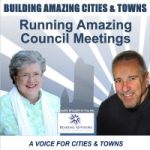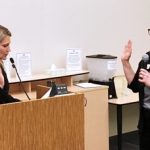Effective Local Government
There are three broad types of financial reports that a board of directors needs to process. Here is an explanation of how to handle them. DOWNLOAD PDF Expenditures requiring board approval before payment Some boards have the responsibility of approving payments before they are made. In this case, the list of checks, warrants, expenditures, etc.…
Dear reader, A friend recently sent me this list of 15 issues that are puzzling for the council he staffs. Does your council struggle with any of these? Let us know by sending an email here! This will help us tailor our training to your real needs. Many of these issues are addressed in self-paced…
Several local government officials have recently described to us situations where elected officials are criticizing and attacking the staff during public meetings. This must not happen. Councilmembers and board members must respect the role of the administrative head of the organization (mayor, city manager, general manager, etc.). They may not criticize the staff in public.…
I had the pleasure this summer of a lively conversation with Jim Hunt, host of “Amazing Cities and Towns” podcast. Jim is a former mayor and councilmember in Clarksburg, West Virginia, and past president of the National League of Cities. He brought a candid eye, wide experience, and sharp insights to our discussion. We talked…
What is the role of the mayor in discussion at city council meetings? The answer to this question is a bit subtle. Download PDF In a large council, mayor does not take part in discussion Robert’s Rules of Order says that in a large group, the chair of the meeting does not take part in…
Planning commissions and citizen advisory committees are a key aspect of our society. Whether it’s a library board, a civil service commission, a parks and recreation board, a lodging tax committee, or one of many more, these dedicated citizens provide the underpinning for our social and civic structures. Sometimes, however, their meetings encounter serious challenges.…
We’ve had inquiries recently about elected officials who lost a vote, and then actively worked against the outcome. This amounts to trying to sabotage the council. It is wrong, wrong, wrong. Download PDF The majority rules General Henry Martyn Robert, the original author of Robert’s Rules of Order, expresses it this way: The great lesson…
This strange time of COVID-19 is producing some strange situations. We hear reports of local government meetings lasting far into the night, in some cases taking as long as 7 hours. (See this article about San Jose California). Does this happen to you? Are your meetings too long? If yes, what can be done…
At a recent workshop, a director from a school board split by pandemic-related decisions asked me what board members can do in the face of intense public pressure. These are tough times for local non-partisan government bodies, for sure. Here are some thoughts about what can be done. Download PDF Listen to your constituents, while…
The clerk of a local government meeting or the secretary on a nonprofit board has a high calling. Under Robert’s Rules, two persons must be present for a valid meeting: the chair and the secretary. They cannot be the same person, and state law often specifies this as well. The clerk or secretary keeps the…











